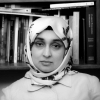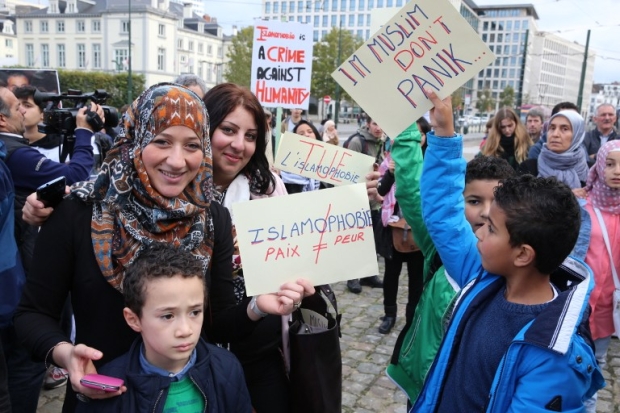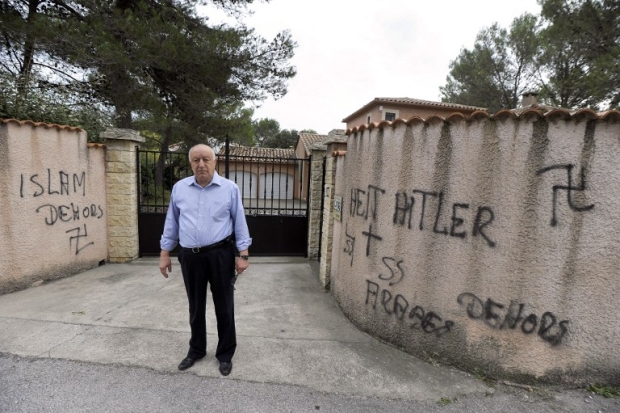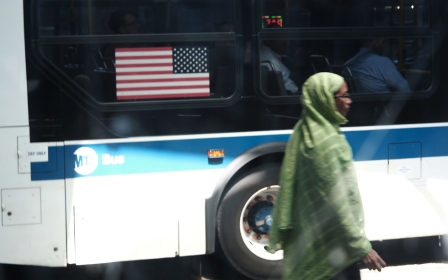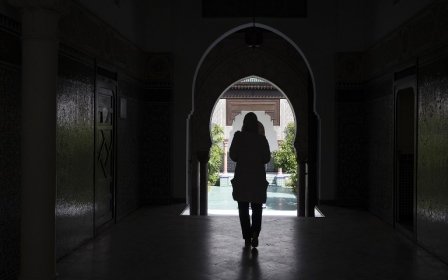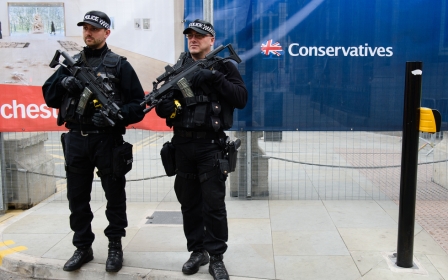Europe’s tide of hating the other makes us all Muslims now
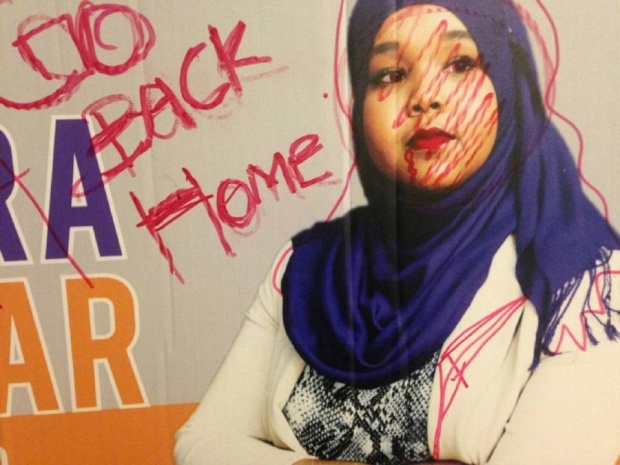
More than 20 years working in human rights and anti-racism work can leave you both pessimistic about the future and inured to rising and raging hatred, let alone the insidious and institutional type.
The Islamic Human Rights Commission's most recent publication on anti-Muslim hatred has, however, startled me – not because it was unexpected, but because, coupled with Brexit, both are a realisation of our worst fears.
It is clear that being able to lambast Muslims for their perceived inability to fit in or their innate tendencies to violence means we can do the same again to all the ‘other’ communities
The latest work looks at the UK. This week it will be presented at a side-panel at the United Nations, a few days after it was also presented to the European Parliament, looking then at the similarities and differences with continental Europe, especially France. Who would have thought that we would find ourselves in a race to the bottom with the republic?
The project that these reports belong to has been running since 2009, but was preceded by the commission’s other empirical research and analysis, and the increasing demands on its advocacy department. Set up almost 20 years ago, IHRC has always had a focus on assessing and tackling anti-Muslim hatred and hostility.
When Islamophobia's existence was debated
Back then, it wasn’t au fait to talk about this. Politicians were cynically and vocally sceptical that "Islamophobia" even existed. The commentariat either followed suit or declared Islamophobia to be right and natural. Muslim organisations were largely silent, often reiterating the mantra that it was a "lot better in the UK" than (delete as required) "the rest of Europe/France/back home".
Our first surveys in 1999 and 2000, asked respondents if they had experienced Islamophobia: 35 percent and 45 percent answered in the affirmative, respectively. If you were young or a woman then it was worse. Just to be clear, this was the UK before 9/11.
Asked again in 2004, 80 percent of the sample said they had experienced it. This time, age, gender, or any other variable bar one had no effect on the outcome. Only being a "White British" Muslim meant that you had an even higher experience of it at 88 percent.
Meanwhile institutions still refused to take action. Reluctantly convinced that Islamophobia was a phenomenon, the authorities claimed a lack of specific statistics (on hate crime and discrimination) barred them from developing policy or improving practice.
On a panel with a representative of Association of Chief Police Officers, I was once told that the police services in an area only had six Islamophobic incidents reported to them that year. I pointed out that we had had more than that reported to us that week, and we were but one third-party reporting agency.
Digging required
The triple bind of institutional failures to acknowledge that a significant number of anti-Muslim acts were taking place, a pre-existing lack of trust in the police based on decades of anti-black policing bias, and the understandable failure of Muslims to report incidents, made it clear that a research method that can assess the levels of abuse faced, the nature and causes of it was desperately needed.
From this need came the Domination Hate Model of Intercultural Relations, a theory that underpins IHRC's work. The reports produced set out to present reliable statistics on the levels of hatred and discrimination faced at the street level and in everyday life (school, university, work etc), but also through the prevailing culture, in the words of commentators, whether media or political, or in the policies of government.
The project charges that the latter influence the former. The first two reports threw up many unsurprising differences between the Muslim experiences in the UK and France. In the UK, experiences of hatred at street level were markedly higher if you were visibly a "religious" Muslim; in France, the mark of Muslimness was cast as an ethnic issue - for example, "being brown" "coming from West Africa" were all cited.
Both results could have been derived from a simple discourse analysis of press and political speech, where each county’s colonial history (Britain’s religious "divide and rule" and France’s disavowal of difference in the project of a colonial not-so-égalité) found realisation in the motivations of hate attackers.
Rise in attacks, drop in hope
In the UK, the media was seen to be the main cause of Islamophobia (more than 60 percent of the sample said they saw negative representation of Muslims in the media).
In France, while the media also bore the brunt of respondents’ ire, the political class were also held accountable, whereas in the UK, there was a lot of faith in the parliamentary system and local democracy, to the extent that some respondents (perhaps echoing the conciliatory claims of Muslim leaders) felt that therein lay the solution even to the issue of negative media tropes.
Poll after poll shows that Muslims still retain a huge sense of loyalty to the UK (in fact, more it seems than the majority community), but they don’t see it being reciprocated
Scroll forward to the latest report UK report. Almost every experience was worse, in many cases significantly so. Experiences of discrimination at work or school doubled; hate attacks were up by almost 4 percent; 90 percent said they saw Islamophobia in the media, 40 percent stated they saw this all the time. Those experiencing verbal abuse rose from 40 percent to 66 percent. While 60 percent in the first survey said they saw politicians using Islamophobic discourse, the second study saw this rise to almost 85.
A second data set for 2016 is being sought in France, but already there has been a notable convergence between it and the UK. There is no longer much hope, in either the parliamentary political process or the political class, among those surveyed.
Poll after poll, whether ours or others’ shows that Muslims still retain a huge sense of loyalty to the UK (in fact, more it seems than the majority community), but they don’t see it being reciprocated, and they know it’s not for want of trying on their part.
Relegitimising all racism
More significantly, and counterintuitively, is the slide from a British model of identity marking - religion - to a broader one of colour and ethnicity. It became clear that visible religiosity was no longer the only marker of victims of Islamophobia. Herein lies the rub, and also the cause of all our fears.
It is clear that being able to lambast Muslims for their perceived inability to fit in (drink alcohol, eat pork etc) or their innate tendencies to violence (look at the narrative of the 2001 riots, or any conversations around security post 9/11) means we can do the same again to all the "other" communities. Brexit proved it. The spike in hate attacks after the referendum was so severe that even the British police had to acknowledge there was a connection.
The environment of hate had not just engulfed a wider form of blackness, it now also included "deviant" forms of whiteness, as Eastern European heritage communities can testify.
A Muslim woman in Milton Keynes who miscarried her twins after she was abused and attacked had problems trying to persuade the doctor who attended to her that she was pregnant
In this Europe, there is no mainstream outcry - even though people die. What would be the response if a man was killed for speaking English in the street? A white European woman anywhere in the world forced to take clothes off at gunpoint or shot and killed while sitting in her car?
In the actual case of a Muslim woman in Milton Keynes who miscarried her twins after she was abused and attacked, she had problems enough trying to persuade the doctor who attended to her afterwards that she was pregnant, never mind the lack of outrage nationwide.
Muslims have been harangued by everyone from Donald Trump to Archbishop Nazir Ali for the existence of fictional no-go areas for non-Muslims in British cities. These fantasies belie the truth that there are real places of violence and death for Britain’s and indeed Europe’s otherised communities.
To be Muslim means to be a member of a community of conscience: membership comes through a simple declaration, a witnessing, of faith. But the mark of Muslimness has created a "Muslim" experience beyond any bonds of faith or even mistaken association with ethnicity. So long as we are differently marked, we are all somehow Muslims now.
- Arzu Merali co-authored the six volumes of the British Muslim Expectations of the Government series. She is one of the co-founders of the Islamic Human Rights Commission. You can follow her on Twitter @arzumerali.
The views expressed in this article belong to the author and do not necessarily reflect the editorial policy of Middle East Eye.
Photo: An image from Meld Islamofobie, a Facebook page that started after the Charlie Hebdo attacks in January 2015 to highlight instances of Islamophobia (Facebook/Meld Islamophobie)
Stay informed with MEE's newsletters
Sign up to get the latest alerts, insights and analysis, starting with Turkey Unpacked
Middle East Eye delivers independent and unrivalled coverage and analysis of the Middle East, North Africa and beyond. To learn more about republishing this content and the associated fees, please fill out this form. More about MEE can be found here.


